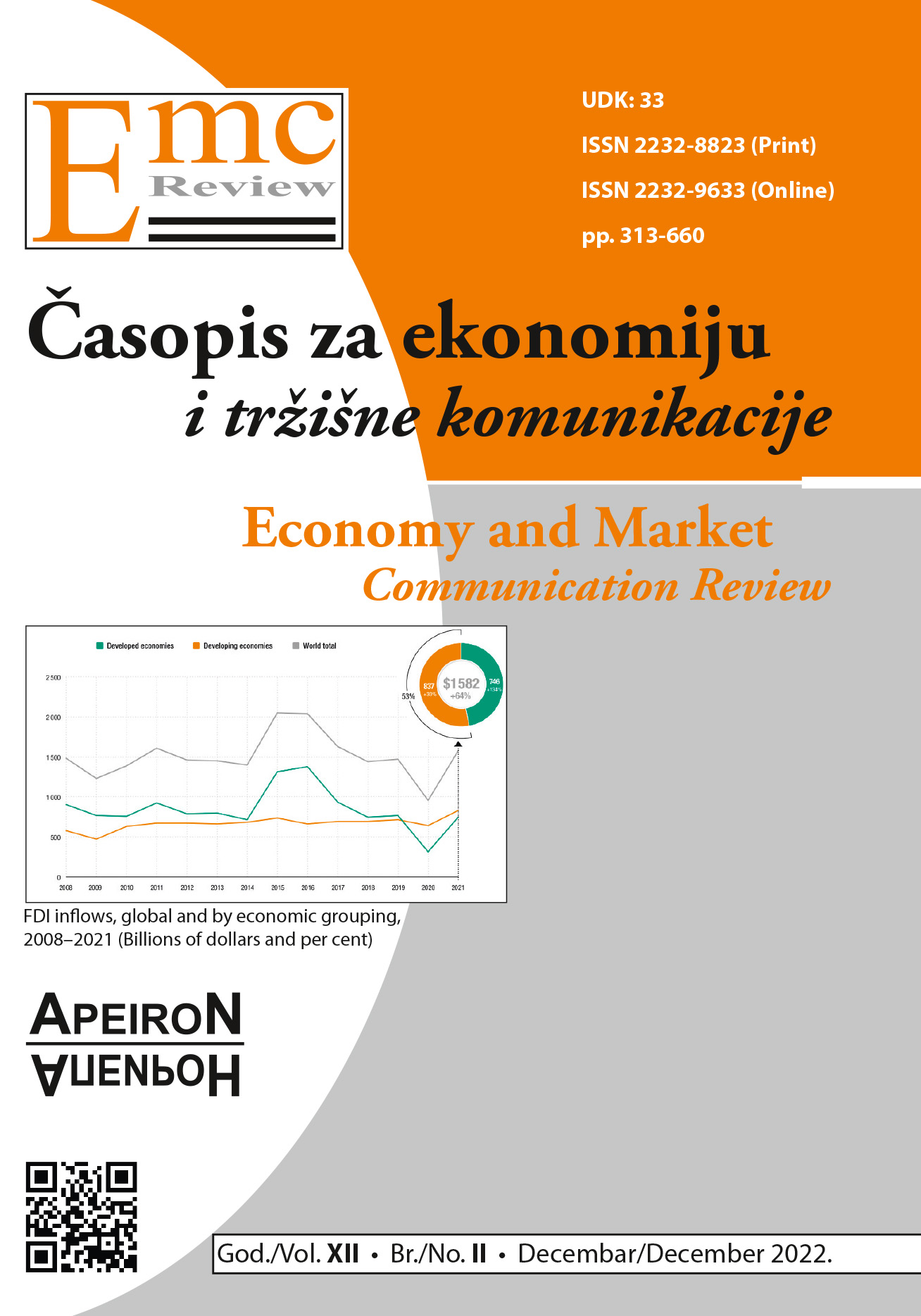RELIABILITY TESTING OF THE MODEL FOR PREDICTION OF INSOLVENCY IN CRISIS CONDITIONS OF BUSINESS - COVID - 19 ON THE EXAMPLE OF TRADE COMPANIES FROM THE REPUBLIC OF SRPSKA
DOI:
https://doi.org/10.7251/EMC2202364MAbstract
The first models for assessing the insolvency of economic entities were developed more than half a century ago. However, the issue of assessing the creditworthiness of companies is still relevant today, especially in the current business conditions, at the time of the COVID-19 pandemic and geopolitical events in Eastern Europe. In such an extremely dynamic environment, it is very important to anticipate solvency problems in a timely manner, in order to prevent all the negative socio - economic consequences that come with the insolvency of economic entities. This is due to the fact that the company is part of the environment within which it operates and there is interdependence between the company as a legal entity and its environment, and with the disappearance of the company from the market scene there are negative circumstances for various stakeholders. Taking into account the above, the aim of this study is to test the applicability of the model for assessing the insolvency of trade companies in the Republic of Srpska in crisis business conditions. The following models were analyzed: Atlman’s Z - score model, Altman’s Z “- score model, Zmijewski model, Fulmer’s model, Kralicek’s model, BEX index and RAPO model. The following indicators were used as indicators of reliability of the analyzed models: sensitivity, specificity, type I error, type II error and the general efficiency rate of each analyzed model.The research covered 455 companies in the field of trade that are registered on the territory of the Republic of Srpska, and which submitted their financial reports to the Agency for Intermediary, Financial and Information Services of the Republic of Srpska for the period 2020-2021. The research hypothesis, which was tested in the paper, reads: Foreign existing models for assessing insolvency, which do not take into account business conditions in the Republic of Srpska, are not applicable in trade activities in Republika Srpska in crisis business conditions. Based on the obtained results, it can be concluded that the main hypothesis in the paper was confirmed, since the highest rate of general efficiency was recorded by the RAPO model, which was developed based on financial ratios of companies from all economic areas in the Republic of Srpska, which enabled it to take into account the socio-economic business conditions of the Republic of Srpska, as well as the mutual influence of economic branches, which is a very important factor of analysis in the period of crisis.
